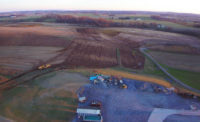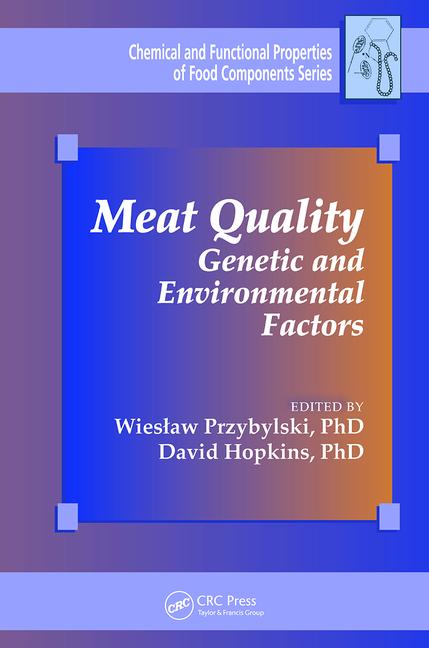Prime Cuts
The end of an era

For nearly 100 years, Brant’s Market provided a touch of Old-World meatcraft to central Kansas. Customers from hours away would make it a point to drive to Lucas to purchase the ring bologna, bacon, jerky and other meat products they couldn’t find anywhere else. The unassuming market earned its reputation one satisfied customer at a time, and was once called one of the 8 Wonders of Kansas Commerce.
Unfortunately, 2018 marked the end of the business. Residents of Russell County were shocked when Stephanie Svaty, the fourth-generation of the Brant family to work in the business, announced during a Chamber of Commerce meeting that Brant’s was closing. It wasn’t that Douglas Brant, proprietor for the last 25 years, wanted to retire. It wasn’t that the company was struggling financially. The decision came when state inspectors presented Brant with a list of changes he needed to make to his operations — in effect, everything he’d been doing for the last 18 years was wrong.
“First of all, it was our decision to close. We were not asked to close or anything like that,” explains Brant, 72. “We’ve been inspected on a yearly basis. They come in and they check the temperature of your coolers, and they check the meat that you have, and they go through your facility. But not once did they talk about having to keep this ungodly amount of paperwork. And that’s where our problem is.”
Brant ran virtually a one-man operation using Old World production techniques and recipes from Czechoslovakia that were handed down from his grandfather. He says that many of the changes that he was told to make were the result of regulations that were set in place in 2000. Somehow over the course of 18 years of inspection, those regulations were not relayed to him. They came in the form of a 22-page document that was handed to him on a state inspection in early January.
Svaty told the Wichita Eagle that the amount of changes requires by the state of Kansas, all at once, burst her father’s bubble.
“The fire left him when he got that 22-page document and read it from front to back and made notes in the margins,” she said. “Maybe if they would have given it to us in chunks, it might not have been so overwhelming.”
“They were talking about you have to write down the code numbers off of the boxes of the meat that you get in, and then what time you take it out, and what time you grind it, what time you wash your grinder,” Brant says. “When the meat truck delivers they want to make sure when the meat comes off the truck it’s below 41 degrees. You’re spending all your time running around by yourself writing all this information down.”
To make matters worse, the state inspector couldn’t even tell Brant where the code numbers he needed to record were located on the box. She told him she would get back to him with that information once she found out for herself. By her own admission, inspection was not her field of expertise, Brant says.
“I’m not blaming the inspector that I had; she was a wonderful lady, she tried to help, but she was having to do what she had to do,” he adds.
Some of the changes were ultimately incompatible with the way Brant’s Market operates. One of the requirements is that meat from two different suppliers could not be comingled into one product. Brant’s ring bologna requires at least two boxes of meat for one batch, and he has always used meat from two different suppliers to get the product just right. He adds that the inspector never asked to see his wood-burning smokehouse, which is located outdoors. Based on his discussions with industry colleagues, the state probably would have had problems with product being taken outside to cook and brought back inside to be cut, wrapped and sold.
The inspector also took issue to his meat block.
“I have an old fashioned maple meat block that my granddad had, and they came in and talked to me about [how] you have to use plastic,” Brant says. “What I researched was that a wood block that is made of a hard wood like maple, if you have any cut or indentation in the meat block, any bacteria that goes down in there can’t survive.”
Through talking with others, Brant found plenty of complaints about plastic cutting blocks. One of his former inspectors told him about the number of plastic blocks that had to be thrown away because they couldn’t be kept clean. A Nebraska processor that Brant knows invited a high school chemistry class to test his plastic cutting boards after they’d been properly cleaned and sanitized, and the students still found bacteria.
Once news of the closing got out, Brant’s phone rang constantly until 5:30 the next day. The company’s entire inventory sold out in a day, though the business stayed open for an extra day to allow for some customers who couldn’t pick up their orders immediately. The closest large town is Salina, and people drove an hour to Lucas just to pick up whatever was available. Brant says that his state and local representatives called him as well.
“We have loyal friends,” he says. “You can’t depend on your locals — you don’t have enough of them. [the population of Lucas is about 400]. You have to depend on your reputation and the people from away.”
Brant understands that the government is trying to keep consumers safe. Brant’s Market has never had a recall and, to his knowledge, never made anyone sick. With a larger operation, he says that someone could take on the task of recording all the information that is required by the state. With his operation, the extra paperwork proved to be too much.
“My favorite thing is the people like these don’t have to live with what they’re telling us to do on a daily basis. That’s basically my side of this,” he says.
There is hope that Brant’s Market isn’t finished yet. Brant says that there is someone interested in the business. Brant has offered to train them, with the traditional techniques that has made Brant’s Market a unique destination for lovers of quality meat products.
“I said, ‘You want to make sure you know exactly what it’s going to take in a small, small operation like this.’ Our little town needs every business they can have,” he says.
Looking for a reprint of this article?
From high-res PDFs to custom plaques, order your copy today!







